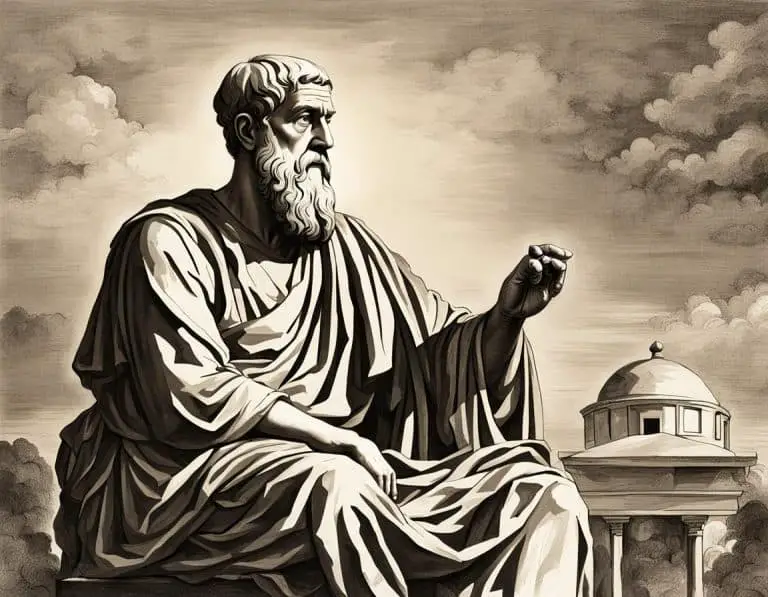Plato’s Critique and Extension of Socratic Ideas
Plato’s engagement with Socratic ideas was both a deep reflection and a critical response to his mentor’s teachings. While Socrates primarily focused on moral philosophy and the pursuit of knowledge, Plato expanded upon these foundations by delving into metaphysical questions and the nature of reality. In his dialogues, Plato often introduced abstract concepts such as the Theory of Forms to challenge and refine Socrates’ more practical approach to philosophical inquiry.
Moreover, Plato’s writings exhibit a nuanced exploration of justice, ethics, and politics that surpass the scope of Socratic examinations. By incorporating elements of mathematics, metaphysics, and epistemology into his dialogues, Plato sought to construct a comprehensive philosophical system that integrated Socratic ethics with his own unique insights. This blend of Socratic principles and Platonic innovations laid the groundwork for the development of Western philosophy and continue to influence scholarly discourse to this day.
Addressing Socrates’ Limitations in Plato’s Works
Plato, a devoted student of Socrates, revered his teacher’s insights and philosophical methods. However, as Plato delved deeper into his own philosophical inquiries, he also recognized certain limitations in Socrates’ approach. While Socrates focused predominantly on ethical discussions and the pursuit of truth through dialogue and questioning, Plato sought to expand beyond these boundaries to explore metaphysical and epistemological concepts.
One of the main limitations Plato identified in Socrates’ teachings was the lack of a systematic and comprehensive philosophical framework. Socrates was known for his ethical inquiries and his method of elenchus, which aimed at uncovering the inherent contradictions in people’s beliefs. However, Plato saw the need for a more structured approach that could provide answers to complex questions about the nature of reality, knowledge, and the soul. Thus, while Socrates laid the groundwork for philosophical inquiry, Plato strove to develop a more robust and all-encompassing system of thought that could address a wider range of philosophical issues.
Socratic Legacy in Plato’s Later Works
Socrates’ influence on Plato’s philosophical legacy shines brightly in his later works, notably “The Laws” and “Phaedo.” In “The Laws,” Plato delves into the world of governance and the question of justice, drawing on Socratic principles of virtue and the importance of knowledge in ethical decision-making. Through the character of the Athenian Stranger, Plato expands on Socrates’ concepts of societal order and the role of reason in guiding human affairs.
Similarly, in “Phaedo,” Plato explores the themes of immortality and the nature of the soul, building upon Socrates’ discussions on the afterlife and the pursuit of truth. Through the dialogue between Socrates and his followers on the day of his execution, Plato infuses Socratic teachings with his own metaphysical speculations, creating a profound reflection on the philosophical quest for understanding the essence of existence.
Socrates’ Presence in The Laws and Phaedo
Throughout Plato’s works, the presence of Socrates can be felt as a guiding force shaping the philosophical discourse. In “The Laws,” Socrates is notably absent, yet his influence resonates in the dialogue between the Athenian Stranger, Cleinias, and Megillus as they discuss the establishment of laws for a just society. While Socrates himself does not partake in the conversation, his ideals of justice, virtue, and the pursuit of truth permeate the dialogue, showcasing his enduring impact on Plato’s philosophical framework.
In “Phaedo,” however, Socrates takes center stage in his final moments before facing death. The dialogue revolves around the immortality of the soul and the philosopher’s contemplation of the afterlife. Socrates’ unwavering commitment to reason, his acceptance of mortality with equanimity, and his belief in the immortality of the soul underscore the profound influence he had on Plato’s philosophical outlook. The poignant portrayal of Socrates in “Phaedo” serves as a tribute to the enduring legacy of the philosopher and highlights the depth of their intellectual connection.
The Evolution of Plato’s Thought under Socrates’ Influence
Plato’s philosophical journey was significantly shaped by his mentor, Socrates. The intellectual exchange between them led to a profound evolution in Plato’s thought, moving beyond the Socratic method of questioning to the development of complex philosophical theories. Socrates’ emphasis on critical inquiry and the pursuit of truth laid the foundation for Plato’s later explorations into metaphysics, ethics, and epistemology.
Under Socrates’ influence, Plato transitioned from the Socratic elenchus, a method of cross-examination to expose contradictions in beliefs, to the Platonic Theory of Forms. This shift marked a departure from the purely dialectical approach of Socrates to a more systematic and comprehensive philosophical framework. Plato expanded on Socrates’ ideas by positing the existence of transcendent, immutable Forms as the true reality behind the world of appearances, thus deepening the philosophical inquiry initiated by his mentor.
From Socratic Elenchus to Platonic Theory of Forms
Plato’s philosophical journey under Socrates’ guidance was transformative, as he shifted from the Socratic elenchus to formulating his own distinctive Theory of Forms. The Socratic elenchus, characterized by questioning and refutation, provided the foundation upon which Plato built his profound philosophical system. Through engaging in dialectical discussions with Socrates, Plato honed his skills in critical thinking and logical reasoning, laying the groundwork for his subsequent intellectual developments.
As Plato delved deeper into his philosophical pursuits, he departed from the Socratic method of inquiry and delved into the realm of metaphysics, giving birth to the Theory of Forms. This revolutionary concept postulated that behind the imperfections of the physical world lies a realm of ideal forms or archetypes, serving as the ultimate reality. By transcending the material world and exploring the realm of abstract principles, Plato departed from Socrates’ focus on ethics and epistemology, ushering in a new era of metaphysical speculation in Western philosophy.
Related Links
A Review of Socrates’ Impact on Plato’s Philosophy
How did Socrates influence Plato’s philosophy?
